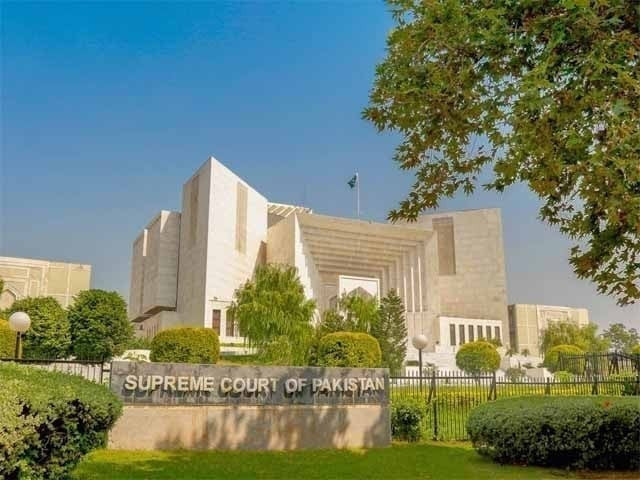SC judge 'doesn't endorse reasoning' in NAB case verdict
.

Supreme Court judge Syed Hasan Azhar Rizvi has written an additional note to the apex court's September 6 ruling in the National Accountability Ordinance, 1999 (NAO) amendment case, noting that while he agreed to the conclusion drawn in the order, he did not endorse the reasoning.
"The majority judgment did not provide sufficient justification for the issues at hand," the judge noted in his 22-page note issued on Wednesday.
Justice Rizvi also took exception to the "unreasonable remarks" made about the former judges of the court, whose judgment the new bench was reviewing on appeal.
"In my humble opinion, judicial comity requires that, even when we disagree with the decisions of other judges, we do so with respect and constructiveness. Criticism should focus on legal principles rather than disparaging those who authored the original decision."
The judge noted that an intra court appeal (ICA) is generally a legal mechanism that allows for an appeal within the same court, to a larger or more senior bench, rather than to a higher court.
"The purpose of the ICA is to provide a remedy for reconsideration when a party is dissatisfied with the decision of a single judge or a smaller bench, without requiring escalation to another tier of the judicial hierarchy.
"This ensures that errors or inconsistencies in legal judgments are reviewed within the same court, promoting fairness and thoroughness in judicial decision-making."
The Supreme Court on September 6 overturned its previous ruling that nullified some of the amendments made to the NAO, 1999 by the last PML-N led government.
In its 5-0 ruling, the apex court had incorporated an additional note by Justice Athar Minallah, stating that the federal government's appeal is not maintainable. However, he also noted that the intra-court appeals of private parties have been accepted for hearing.
The Supreme Court, in a unanimous decision, approved the government's appeals regarding the NAB amendments and declared the amendments valid.
The ruling also overturned the majority decision by former chief justice Umar Ata Bandial and retired justice Ijazul Ahsan, which had nullified the amendments in a majority order in September 2023 while hearing a petition filed by former prime minister Imran Khan.
In 2022, Pakistan's accountability laws were amended by the PML-N led coalition government.
The changes to the NAO, 1999 included reducing the terms of the NAB chairman and prosecutor general to three years. They also limited NAB's authority to file cases involving amounts over Rs500 million and transferred pending investigations and trials to other authorities.
Imran Khan challenged these amendments in the Supreme Court, arguing that the changes were designed to benefit influential figures and legitimize corruption.
His petition claimed that the amendments would scrap corruption cases against top officials, including the president, prime minister, chief ministers, and ministers, while offering convicted public office holders a chance to overturn their convictions.
In September 2023, after 53 hearings, the SC delivered a 2-1 verdict. It restored corruption cases against public officials that were dismissed under the amendments and upheld the maintainability of Imran's plea.



1725254039-0/Untitled-design-(24)1725254039-0-208x130.webp)















COMMENTS
Comments are moderated and generally will be posted if they are on-topic and not abusive.
For more information, please see our Comments FAQ